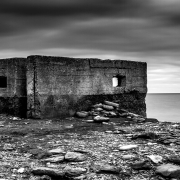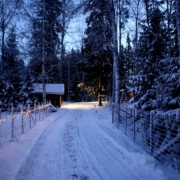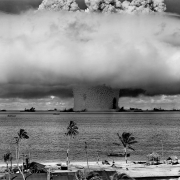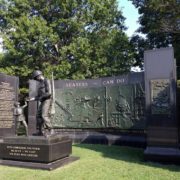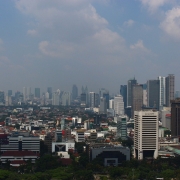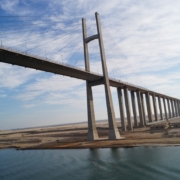What were the key events of the Cold War?
Following the assessment of the visual-based sources that cover the Emergence of Bipolarity, we will be examining text-based sources to have a more comprehensive study of this topic. This article will analyze the interactions between the key players, particularly USA and Soviet Union, based on the major events that took place after World War Two. This article will be applicable to students taking either H2 History or H1 History.
Yalta Agreement [24 March 1945]
During World War Two, leaders of the Grand Alliance (USA, Great Britain and Soviet Union) met to discuss plans for a post-war Europe, particularly Germany. Generally, there were three essential areas of consideration in the Yalta Agreement.
First, the ‘Declaration of Liberated Europe’ meant that the leaders were bound to oversee the conduct of free and fair elections. Second, a demilitarized Germany would be divided into four zones occupied by USA, Great Britain, France and Soviet Union. Third, ‘free and unfettered elections’ were to be held in Poland.
Unfortunately, the end of WWII led to the collapse of the Grand Alliance. Roosevelt expressed his concerns to Stalin over the ‘Polish issue’ as the Polish government remained under communist control. Subsequently, pro-Soviet governments were formed in Eastern Europe, with Czechoslovakia being the final country that joined the ‘Eastern Bloc’. Hence, the perceived non-cooperation of Soviet Union fueled the deep-seated distrust of USA and Great Britain.
George Kennan’s Long Telegram [22 Feb 1946]
American diplomat George Kennan delivered a long telegram to US Secretary of State James Byrnes as he was failed to convince US President Harry Truman to abandon the cooperative stance with Soviet Union. More importantly, Kennan outlined the communist threat that should not be left unchecked in Europe. Eventually, his writings have shaped the American foreign policy of ‘containment’ in the subsequent years, particularly Truman Doctrine.
Winston Churchill’s Iron Curtain Speech [5 March 1946]
At Westminster College, former British Prime Minister Winston Churchill delivered a historic speech (also known as the ‘Sinews of Peace’). In view of Kennan’s assessment of the ideological threat in Europe, Churchill stated that ‘an iron curtain has descended across the Continent.‘ Furthermore, he stated that the ‘Communist parties or fifth columns constitute a growing challenge and peril to Christian civilization.’ As a result, Churchill’s ‘Iron Curtain’ speech reflected the growing distrust towards the former wartime ally – Soviet Union.
Afterwards, Stalin responded to the speech during an interview with the Soviet newspaper Pravda. He refuted Churchill’s statements, claiming that the formation of pro-Soviet governments in Eastern Europe was an important security measure against a potential invasion.
Harry Truman’s Address to the US Congress [12 March 1947]
Following George Kennan’s Long Telegram, Truman was certain that the communist threat had to be dealt with. As such, the Truman Doctrine was initiated. During his address, Truman emphasized that American intervention ‘should be primarily through economic and financial aid’. As such, the US provided large sums to aid Greece and Turkey during the Greek Civil War.
Additionally, US Secretary of State George Marshall delivered a speech at Harvard University on 5 June 1947. He highlighted the altruistic intentions of USA as the provision of financial assistance to facilitate the post-war reconstruction in Europe was of great importance to many nations. Marshall stated that USA’s policy was ‘directed not against any country or doctrine but against hunger, poverty, desperation and chaos’.
The Berlin Blockade [24 June 1948]
Failure to achieve common consensus over the ‘German Question’ became a sore point for the Grand Alliance. Due to security concerns, the Soviet Union feared the revival of a former wartime enemy – Germany. Yet, the Western nations (USA and Great Britain) focused on post-war economic recovery, which was perceived by the Soviets as a provocative response.
Before the Blockade was imposed, USA and Great Britain combined their occupation zones into the ‘Bizone’. A year later, France joined and a ‘Trizone’ was created. More importantly, Germany was included as a recipient of Marshall Plan, which alarmed Stalin. The Allies were accused of violating the Potsdam Agreement.
On 25 March 1948, the Blockade was formed, in which Soviet military prevented the movement of supplies from West Germany to West Berlin. This prompted the Allies to capitalize on their air superiority, as seen by the Berlin Airlift. The Airlift provided numerous supplies to the Berliners and forced the Soviets to end the Blockade.
The Blockade was a major turning point during the Cold War as marked one of the closest point of military confrontation between the superpowers. Subsequently, Germany was formally divided into East and West Germany.
Are you ready to ace the GCE A Level Examinations?
In view of these historical developments, it is important that you apply your knowledge to practice questions. By doing so, you will develop the capacity to express your ideas in an argumentative format, which is critical due to the time constraints of the examinations. During the JC History Tuition, we teach students to write outlines and engage in class discussions to refine their answering skills.
The H2 and H1 History Tuition feature online discussion and writing practices to enhance your knowledge application skills. Get useful study notes and clarify your doubts on the subject with the tutor. You can also follow our Telegram Channel to get useful updates.
We have other JC tuition classes, such as JC Math Tuition and JC Chemistry Tuition. For Secondary Tuition, we provide Secondary English Tuition, Secondary Math tuition, Secondary Chemistry Tuition, Social Studies Tuition, Geography, History Tuition and Secondary Economics Tuition. For Primary Tuition, we have Primary English, Math and Science Tuition. Call 9658 5789 to find out more.



